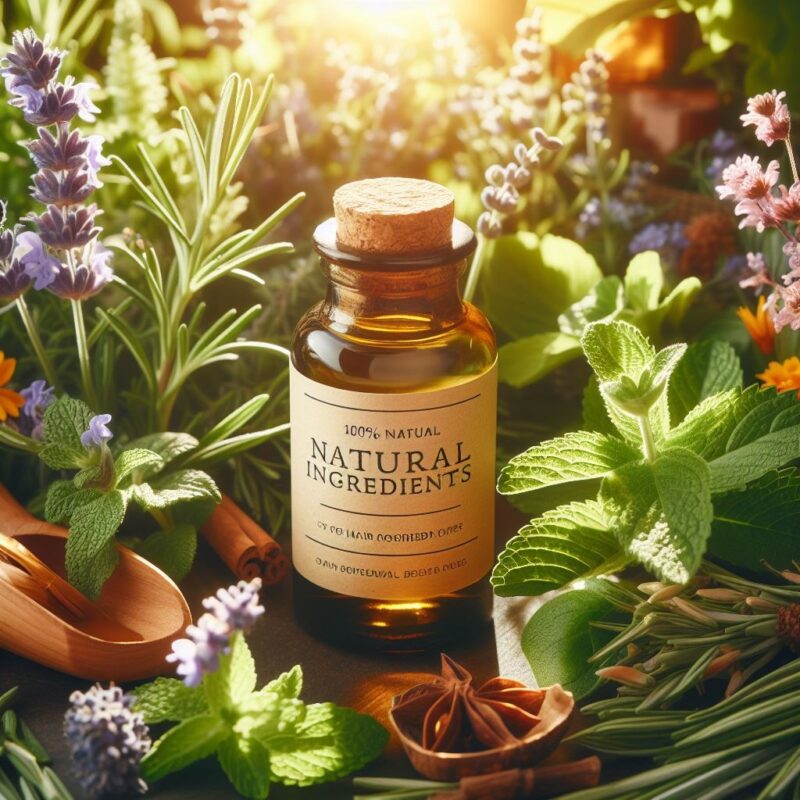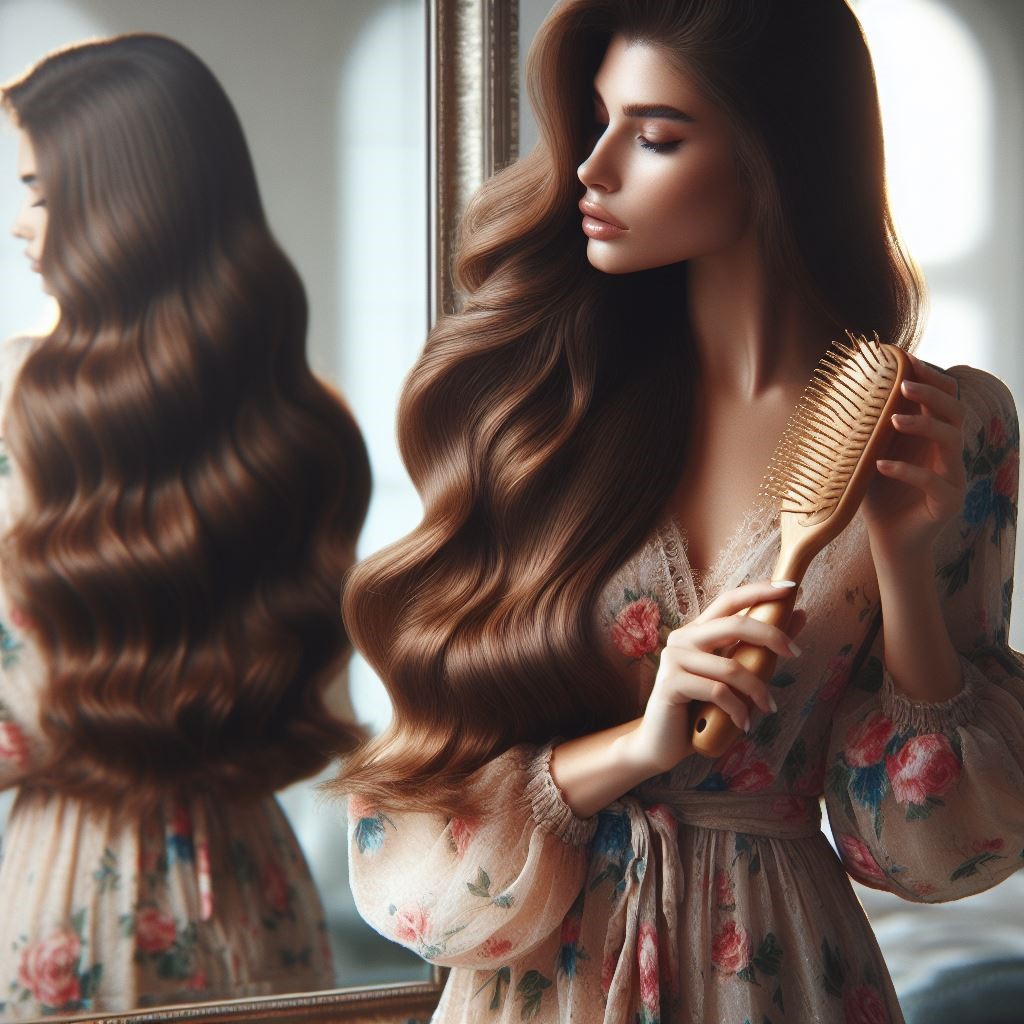Understanding the Benefits of Organic Hair Oil for Hair Health
Organic hair oil has gained popularity in recent years due to its numerous benefits for hair health. One of the main advantages of using organic hair oil is its ability to deeply nourish and moisturize the hair follicles. The natural ingredients found in these oils, such as coconut oil, argan oil, or jojoba oil, penetrate the hair shafts, providing essential nutrients like vitamins and minerals. This helps to strengthen the hair from within, reducing breakage and split ends.
In addition to nourishing the hair, organic hair oil also helps to improve scalp health. Many people suffer from dry scalp, which can lead to dandruff and itchiness. Applying organic hair oil directly to the scalp can help to replenish moisture, soothe irritation, and promote a healthy scalp environment. By treating the scalp, organic hair oil indirectly supports hair growth and overall hair health. Regular use of organic hair oil can lead to softer, shinier, and healthier-looking hair.
Essential Ingredients for DIY Organic Hair Oil
When it comes to creating your own organic hair oil, it’s important to choose the right ingredients to ensure maximum effectiveness. There are several essential ingredients that are commonly used in DIY hair oils. One of the most popular ingredients is coconut oil, which is known for its deep moisturizing properties. Coconut oil helps to nourish and strengthen the hair, promoting healthier and shinier locks. Another essential ingredient is olive oil, which is rich in antioxidants and vitamins. Olive oil helps to prevent hair damage and improve overall hair health. Additionally, essential oils such as lavender, rosemary, and peppermint can be added to the hair oil for added benefits. These essential oils not only provide a pleasant scent, but they also have therapeutic properties that can stimulate hair growth and reduce scalp inflammation. By combining these essential ingredients, you can create a DIY organic hair oil that is tailored to your specific hair needs.
How to Choose the Right Carrier Oils for Your Hair Type
When it comes to choosing the right carrier oils for your hair type, it’s important to consider the specific needs of your hair. Different carrier oils offer different benefits, so selecting the right one can make a noticeable difference in the health and appearance of your hair.
For individuals with dry or damaged hair, moisturizing carrier oils such as argan oil or jojoba oil can be particularly beneficial. These oils are rich in essential fatty acids and vitamins that help nourish and hydrate the hair strands, making them softer and more manageable. On the other hand, if you have oily or greasy hair, lighter carrier oils like grapeseed oil or almond oil can provide the necessary hydration without weighing down the hair. These oils have a lighter texture and are easily absorbed, helping to control excess oil production while keeping your hair healthy and glossy.
By understanding your hair type and its specific needs, you can choose the right carrier oils that will effectively address your hair concerns and promote overall hair health. Whether you have dry, oily, or normal hair, incorporating carrier oils into your hair care routine can be a wonderful way to nourish and protect your locks naturally.
Exploring the Benefits of Various Essential Oils for Hair Care
Essential oils have long been utilized for their therapeutic properties, and their benefits extend beyond just aromatherapy. When it comes to hair care, various essential oils can work wonders in promoting healthier, shinier, and stronger locks. Lavender oil, for example, is known for its calming properties and ability to promote hair growth. By massaging lavender oil into the scalp, it not only improves blood circulation but also reduces stress levels, which can prevent hair loss. Additionally, tea tree oil is renowned for its antifungal and antibacterial properties, making it a great choice for treating dandruff and soothing an itchy scalp. Its cleansing properties also help to remove build-up from hair products, leaving the scalp feeling refreshed.
Another essential oil that is highly beneficial for hair care is rosemary oil. Its stimulating properties promote hair growth and help to combat hair loss. Rosemary oil is commonly used to improve the overall health of the scalp and strengthen hair follicles. Peppermint oil, on the other hand, provides a cooling sensation when applied to the scalp, which promotes blood circulation and can help to revitalize hair follicles. Its anti-inflammatory properties can soothe an irritated scalp and relieve any discomfort. These essential oils, among others, offer a range of benefits for hair care and can be conveniently incorporated into your daily hair care routine.
Step-by-Step Guide to Making Your Own Organic Hair Oil at Home

To make your own organic hair oil at home, you will need a few key ingredients. First, select a carrier oil that suits your hair type. Jojoba oil is great for oily hair, while argan or coconut oil work well for dry or damaged hair. Next, choose essential oils that target your specific hair concerns. Lavender oil promotes hair growth, peppermint oil stimulates the scalp, and rosemary oil helps to prevent hair loss. Lastly, gather a clean glass bottle or container to store your homemade hair oil.
To start, pour the desired amount of carrier oil into your glass bottle. The amount will depend on the length and thickness of your hair. Generally, one to two ounces should be sufficient. Next, add a few drops of your chosen essential oils to the carrier oil. You can adjust the number of drops based on your preference and the strength of the essential oil. Remember to always use a dropper for precise measurement. Once all the ingredients are in the bottle, secure the lid tightly and shake gently to mix them together. Store your homemade hair oil in a cool, dark place and use as needed for healthy, nourished locks.
Tips for Properly Applying Organic Hair Oil for Maximum Effectiveness
Applying organic hair oil is a simple and effective way to nourish and revitalize your hair. To ensure maximum effectiveness, there are a few tips to keep in mind. First, start with clean, towel-dried hair. This allows the oil to penetrate the strands more easily, helping to seal in moisture and nutrients. Avoid applying the oil to wet hair, as it may not distribute evenly and could leave your hair feeling greasy.
When applying the organic hair oil, start at the ends of your hair and work your way up towards the roots. This helps to prevent excessive oiliness at the scalp while ensuring that your ends, which are more prone to dryness and damage, receive the full benefits of the oil. Gently massage the oil into your scalp using circular motions to stimulate blood flow and promote hair growth. Be sure to cover all areas of your scalp, paying extra attention to any problematic areas, such as a dry or itchy scalp. Lastly, leave the oil in for at least 30 minutes before shampooing to allow it time to deeply penetrate and nourish your hair.
The Importance of Regularly Massaging Your Scalp with Organic Hair Oil
Massaging your scalp with organic hair oil is an essential step in maintaining healthy hair and promoting growth. The act of massaging not only feels great, but it also has numerous benefits for your scalp and hair follicles. It helps to increase blood circulation, which in turn nourishes the hair follicles and promotes the growth of strong and healthy hair. Additionally, massaging your scalp helps to distribute the natural oils produced by your scalp, preventing dryness and keeping your hair moisturized.
Regular scalp massages with organic hair oil are especially beneficial for those who struggle with hair loss or thinning hair. The gentle massage action stimulates the hair follicles, promoting new hair growth and preventing further hair loss. It also helps to strengthen the roots of your hair, reducing breakage and improving the overall health of your hair. By incorporating this simple practice into your hair care routine, you can effectively support the health and vitality of your hair, ensuring that it looks and feels its best.
How Often Should You Use Organic Hair Oil for Optimal Results?
Using organic hair oil is a wonderful way to promote healthy, nourished hair. To achieve optimal results, it is important to use the oil regularly. The frequency with which you should apply the oil depends on your individual hair type and condition.
For those with dry or damaged hair, using organic hair oil two to three times a week can provide the necessary hydration and nourishment. This frequency allows the oil to deeply penetrate the hair shaft, restoring moisture and leaving your locks looking lustrous and revitalized.
On the other hand, individuals with normal or oily hair may benefit from using organic hair oil once a week. Applying the oil too frequently in such cases may lead to an excessive build-up of product, potentially weighing the hair down. By using the oil in moderation, you can still reap the benefits without compromising the natural balance of your hair.
Ultimately, finding the right frequency for your organic hair oil treatments requires some experimentation. Start by using the oil once a week and observe how your hair responds. Adjust the frequency accordingly to achieve the optimal results for your hair type and desired level of nourishment. Remember, consistency is key when it comes to reaping the full benefits of organic hair oil.
Common Hair Problems and How Organic Hair Oil Can Help
Dry and brittle hair is a common problem that many people face. This can be caused by various factors such as excessive heat styling, chemical treatments, environmental factors, and even genetics. Organic hair oil can help to alleviate this issue by providing deep hydration and nourishment to the hair shaft. The natural oils present in organic hair oil penetrate the hair strands, moisturizing them from within and leaving them soft, smooth, and more manageable. Regular use of organic hair oil can help to restore the natural moisture balance of the hair, preventing dryness and breakage.
Another common hair problem is frizz and lack of shine. This can be especially frustrating for those with naturally curly or wavy hair. Organic hair oil can effectively tame frizz and add a healthy shine to the hair. The natural oils in the organic hair oil form a protective barrier around the hair shaft, preventing moisture loss and reducing frizz. Additionally, the nourishing properties of organic hair oil help to improve the overall health of the hair, resulting in shinier and more lustrous locks. By incorporating organic hair oil into your hair care routine, you can bid goodbye to frizz and hello to smooth, shiny hair.
Natural Alternatives to Commercial Hair Products: Embracing the Benefits of Organic Hair Oil
In recent years, there has been a growing trend towards using natural alternatives to commercial hair products. People are becoming more aware of the potential harm that synthetic chemicals can cause to their hair and overall health. One natural alternative that has gained significant popularity is organic hair oil. Organic hair oil is derived from plant-based ingredients and is free from harmful chemicals like parabens and sulfates. This natural product offers numerous benefits for hair health, including moisturizing, nourishing, and strengthening the hair strands. With regular use, organic hair oil can help to combat dryness, frizz, and breakage, leaving your hair looking healthy and lustrous. By embracing the benefits of organic hair oil, you can say goodbye to chemical-laden products and make a positive impact on both your hair and the environment.













